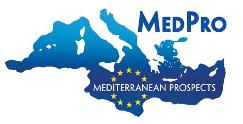A new study on "The Relationship Between Energy and Socio-Economic Development in the Southern and Eastern Mediterranean" has been published
 The economies of the Southern and Eastern Mediterranean countries (SEMCs) rely heavily on their energy potential. Despite their economic growth in recent years, the SEMCs face many socio-economic challenges, such as poverty, unemployment and rapid demographic growth. With excessive private expenditures on energy, the SEMCs have introduced energy consumption subsidies, yet these are not equally distributed and do not reach the poorest individuals. Moreover, these subsidies hinder the development of renewable energy sources.
The economies of the Southern and Eastern Mediterranean countries (SEMCs) rely heavily on their energy potential. Despite their economic growth in recent years, the SEMCs face many socio-economic challenges, such as poverty, unemployment and rapid demographic growth. With excessive private expenditures on energy, the SEMCs have introduced energy consumption subsidies, yet these are not equally distributed and do not reach the poorest individuals. Moreover, these subsidies hinder the development of renewable energy sources.
In their newest publication within the MEDPRO project, CASE Fellows Emanuel Bergasse, Wojciech Paczyński, Marek Dąbrowski and Luc De Wulf try to measure the impact of the energy sector on various macroeconomic and social indicators. The authors underline a common paradox: energy resources often make up the largest share of GDP but, at the same time, provoke strong financial imbalances and lead to backwardness. This creates a situation in which economies depend on a single and unstable sector. The solution suggested by the experts is a long-term energy strategy based on solid institutions, scientific research, sound climate policies and cooperation in the Mediterranean region.
